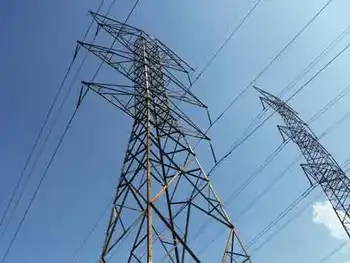Smart grid spending powers ahead in Asia
- Japan, South Korea and China are investing about $9 billion this year in infrastructure and information technology to make electricity networks more efficient, creating lucrative opportunities for niche technology and equipment providers.
The "smart grid" system, through computerized monitoring of electricity flowing through a power grid, allows utilities to automatically manage electricity usage in a way that is more reliable and flexible.
Asia's spending on smart grids is expected to outpace the United States, with China alone seen investing $7.3 billion in the sector this year, according to Zpryme, a market research firm based in Austin, Texas.
"China is pursuing smart grid as aggressively or more aggressively than any other country in the world right now," said Brad Gammons, vice-president of IBM's Global Energy & Utilities Industry, told Reuters in an interview.
"They're very focused and have a very strong commitment to move in that direction," he said.
IBM along with companies such as Cisco and Microsoft are investing in the smart grid market in China.
The focus on smart grids will benefit businesses in the whole power distribution system, from makers of pole transformers to electricity meters and software providers to storage battery manufacturers.
Osaki Electric Co, which makes electric measuring devices in Japan, and South Korea's LS Industrial Systems, which owns power transmission and distribution technologies, are examples of companies that could get a boost from smart grid development.
"Osaki Electric have been developing a smart meter which is a positive catalyst for the share price going forward," said Japaninvest analysts in a report.
Despite a two-third rise in its share price in the past year, LS Industrial trades at 15 times estimated earnings, much lower than Osaki at almost 50 times and the sector average of about 54 times, according to Thomson Reuters data.
Little-known Chinese companies including Zhuzhou CSR Times Electric Co Ltd, which makes electric converters and control systems, and maker of electric meters, Wasion Group are also popular among analysts.
Both stocks have more than doubled in the past year and trade at below sector average PEs, at 33 times and 15 times estimated earnings, respectively.
Analysts said government spending will go a long way to driving regional demand for smart grid equipment and technology, helping create bigger businesses in the sector.
China alone could spend over $100 billion upgrading its power distribution over the next 10 years, said Yuanta Securities analyst Min Li.
Japan and South Korea, which are a step ahead of China in the building of intelligent power distribution networks, are also ramping up smart grid investment. Both are ear-marking spending of more than $800 million this year, according to a Zpryme report released in January.
South Korea aims to spend 27.5 trillion won (US $23.7 billion) by 2030 on smart grids to help meet its emissions reduction target, and is building the world's largest smart grid test-bed in Jeju island, in the south of the country.
As future distribution networks could eventually go wireless, the upgrade of Asia's power distribution network also could benefit mobile operators such as SK Telecom.
"Smart grid itself is a combination of electricity equipment and IT infrastructure," said analyst with Kim Min-ho at E*Trade Securities. "As it is highly possible that metering will be made through wireless communication, there will be increasing demand to borrow wireless networks."
Analysts see challenges ahead.
Incentives that would further bolster private investment are lacking in Asian markets including South Korea, while the United States and Europe are making separate moves to shape the standards for smart grid deployment worldwide.
"If the United States or Europe move first to set up global standards, Asian firms will have to spend a lot to develop technologies and systems to meet those standards," said Kim Ik-sang, analyst at Hi Investment & Securities.
"It is important for Asian companies to work with their U.S. and European counterparts and participate this early in the development of these standards," he said.
Related News

Ontario rolls out ultra-low electricity rates
TORONTO - A million households can opt into a new ultra-low overnight electricity rate offered by the Ministry of Energy, but that's just a fraction of customers in Ontario.
Only eight of the 61 provincial power utilities will offer the new rate on the May 1 launch date. The rest have up to six months to get on board.
That means it will be available to 20 percent of the province's five million electricity customers, the Ministry of Energy confirmed to CBC News.
The Ford government's new overnight pricing was pitched as a money saver for Ontarians, undercutting its existing overnight rate from…




